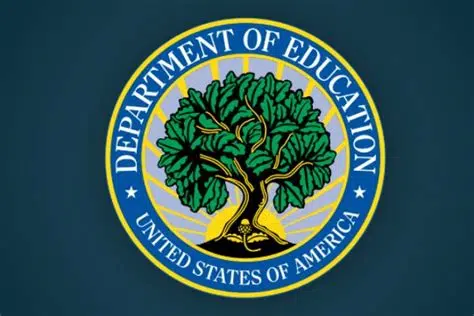By Kate Reynolds
College programs that typically leave graduating students with unaffordable or low-pay loans will lose access to federal money in a Department of Education’s fortified Gainful Employment rule being finalized by the Biden administration. The policy applies primarily to for-profit colleges and certificate programs at traditional universities.
The Education Department announced the final rule, proposed in May, will be published on Tuesday, Oct. 10, and take effect in July 2024. The soonest any program could lose federal money is in 2026.
“Higher education is supposed to be an invaluable investment in your future. There is nothing valuable about being ripped off or sold on a worthless degree,” Education Secretary Miguel Cardona said at a press briefing.
An association of for-profit colleges denounced the policy as an unfair attack, saying any policy should be applied evenly across all types of schools. The rule applies to all for-profit college programs but not to bachelor’s degrees and most graduate programs at traditional colleges.
“Once again, the Department has rushed the process, overlooking critical issues, to hastily implement and weaponize a final Gainful Employment rule against for-profit institutions,” said Jason Altmire, president and CEO of Career Education Colleges and Universities.
The rule will put college programs through two tests to determine whether they’re helping students.
The first test will look at whether a program’s graduates carry a heavy student debt compared to their earnings. Programs will be accepted if graduates have yearly loan payments averaging no more than 8 percent of their total income or 20 percent of their discretionary (left to individual choice or judgment) income.
The second test will be to find out whether at least half of a program’s graduates earn more than working adults in their state with only a high school degree.
Any programs that fail either test will be required to warn students they are at risk of losing federal money. Any college program that yields the same test result twice in any three-year period will lose federal aid.
In a separate part of the rule, the Education Department will begin publishing information regarding actual program costs (including books, fees, and tuition), student debt levels, and earnings after graduation.
“These rules will stop taxpayer dollars from going to schools that continually saddle students with unaffordable debt,” said James Kvaal, undersecretary of education. “Separately, we’re ensuring all students have increased information to make good choices.”
Senate Majority Whip Dick Durbin (D-IL) commended the Department of Education’s fortified Gainful Employment rule. In June, Durbin led six of his colleagues in supporting the now-finalized law in a letter to Department of Education Secretary Miguel Cardona.
“The Biden Administration’s Gainful Employment rule provides necessary protections for students and is welcome news. This marks the strongest accountability framework for career training programs yet. Students nationwide stand to benefit as the revitalized rule will finally ensure program integrity, proper oversight, and accountability for postsecondary programs.”
Some for-profit colleges, also known as proprietary colleges, say the rule unfairly punishes colleges that enroll large numbers of students who may face wage discrimination in the workforce, including women of color. Those programs could be at risk if their graduates consistently earn lower-than-average pay. Other for-profit colleges say it could jeopardize programs in areas where there are few alternatives.
For-profit colleges are post-secondary schools that rely on investors and survive by making a profit. They include for-profit vocational and technical schools, career colleges, and predominantly online universities. For-profit colleges have frequently offered a career-oriented curriculum that provides for culinary arts, business, technology, and health care.
Beauty school programs would be hit especially hard, according to an Associated Press analysis of the rule. Almost two-thirds of cosmetology certificates could be at risk of failing the test and losing federal money, along with more than a third of such programs in massage therapy and dental support services.
Cosmetology schools fought hard against the rule, saying the department has failed to consider a well-known problem in the industry, the underreporting of income to the IRS. The practice makes it look like cosmetology graduates earn less than they really do, which could penalize them under the new rule, schools say.
The Education Department estimates the rule will protect about 700,000 students a year who would otherwise enroll in one of nearly 1,700 low-performing programs.
